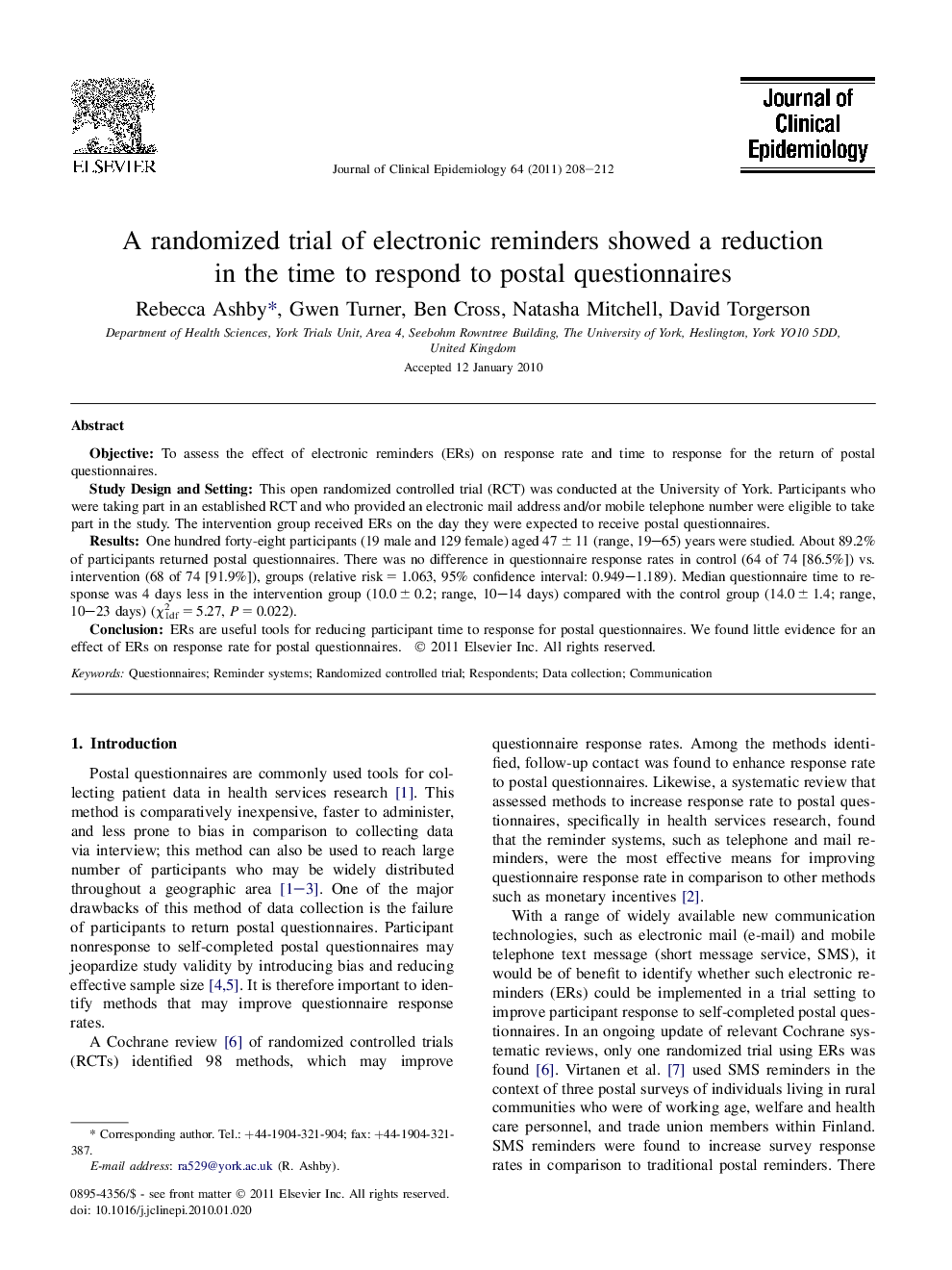| Article ID | Journal | Published Year | Pages | File Type |
|---|---|---|---|---|
| 1082721 | Journal of Clinical Epidemiology | 2011 | 5 Pages |
ObjectiveTo assess the effect of electronic reminders (ERs) on response rate and time to response for the return of postal questionnaires.Study Design and SettingThis open randomized controlled trial (RCT) was conducted at the University of York. Participants who were taking part in an established RCT and who provided an electronic mail address and/or mobile telephone number were eligible to take part in the study. The intervention group received ERs on the day they were expected to receive postal questionnaires.ResultsOne hundred forty-eight participants (19 male and 129 female) aged 47 ± 11 (range, 19–65) years were studied. About 89.2% of participants returned postal questionnaires. There was no difference in questionnaire response rates in control (64 of 74 [86.5%]) vs. intervention (68 of 74 [91.9%]), groups (relative risk = 1.063, 95% confidence interval: 0.949–1.189). Median questionnaire time to response was 4 days less in the intervention group (10.0 ± 0.2; range, 10–14 days) compared with the control group (14.0 ± 1.4; range, 10–23 days) (χ21df = 5.27, P = 0.022).ConclusionERs are useful tools for reducing participant time to response for postal questionnaires. We found little evidence for an effect of ERs on response rate for postal questionnaires.
